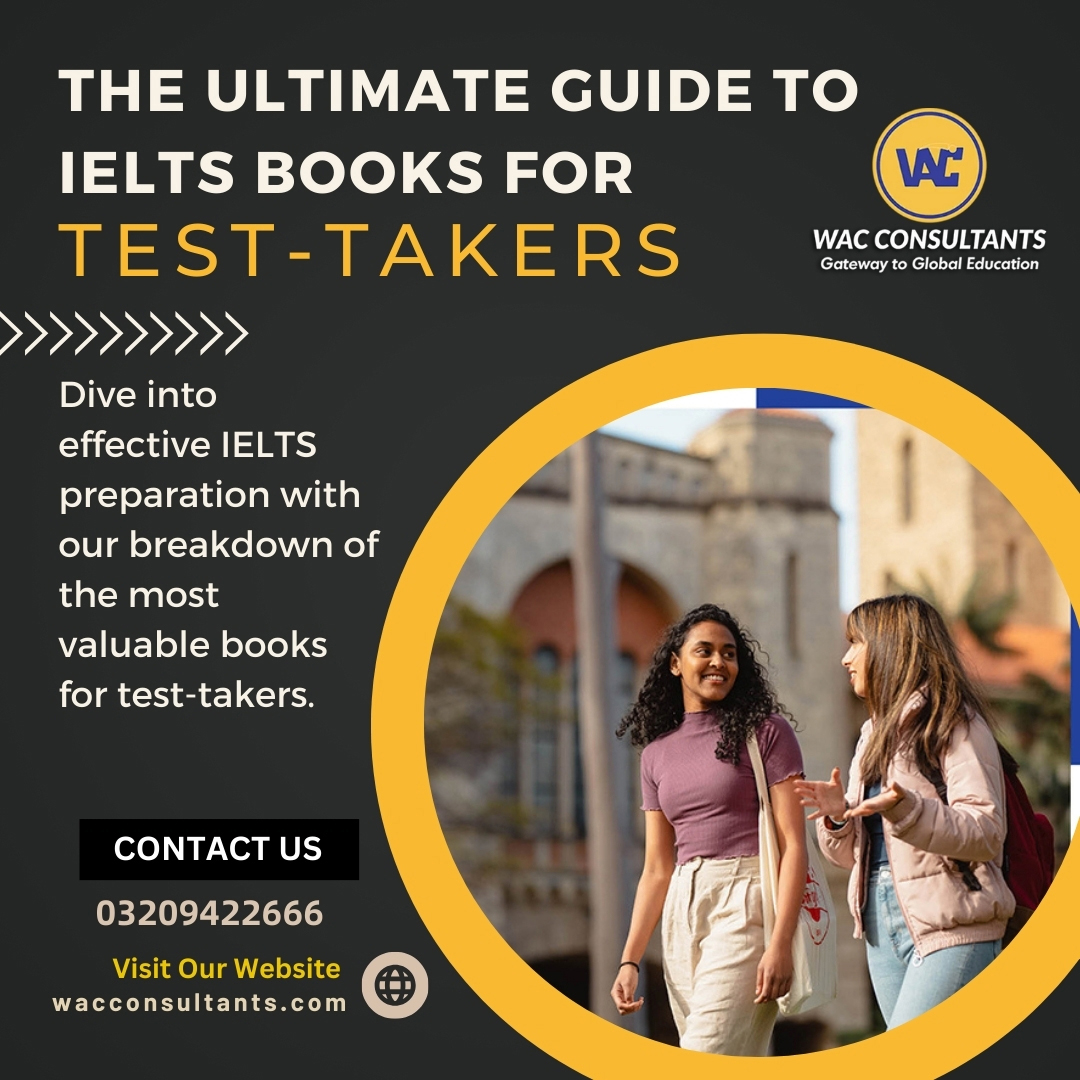Regarding the crucial IELTS exam—short for the International English Language Testing System—your study materials can be the difference between achieving your English language proficiency goals and falling short. The IELTS test is a gateway for millions, assessing listening, reading, writing, and speaking skills for individuals aiming to study, work, or migrate to English-speaking countries. Serious candidates understand that comprehensive preparation is critical, and selecting the right study resources is one of the first strategic decisions in the IELTS journey.
This guide dives deep into the world of IELTS preparation books. We’ll provide titles and insights on integrating them into your study plan and maximizing their effectiveness. Whether you’re just starting to think about the IELTS or gearing up for the test, this article is tailor-made for you.
Understanding the IELTS and Why Preparation Matters
Before we launch into the bibliography of great IELTS books, it’s essential to understand the test’s significance. IELTS is a globally recognized yardstick for your English language capability, overseen by the British Council, IDP Education, and Cambridge Assessment English. It’s a mandatory checkpoint for international study, employment, or immigration processes, and the competition is often fierce. That’s why serious preparation is paramount; it’s your chance to show your best English.
An Overview of IELTS Test Sections
The IELTS exam is divided into four essential sections, each offering unique challenges that demand your attention.
Listening
The Listening test is 30 minutes long, with 40 questions that become progressively more difficult. You listen to four recorded texts, monologues and conversations by a range of native speakers and write your answers as you listen.
Reading
The Reading test also lasts 60 minutes. It consists of three passages which gradually escalate in complexity from descriptive and factual to discursive and analytical. You’re given either reading for main ideas, reading for detail, and recognizing the writer’s opinions, attitudes and purpose or following the development of an argument.
Writing
You have 60 minutes to complete two writing tasks in the Writing test. The first is a 150-word summary of information from a reading passage, which assesses your ability to summarise details. The second is a 250-word essay, which incites argumentation and discussion on a topic related to contemporary issues.
Speaking
The Speaking test is an 11-14 minute face-to-face interactive interview with a certified, experienced examiner. It’s structured into three parts: the interview, a quick speech on a familiar topic, and a lengthier conversation, which can be particularly spontaneous.
The Role of Books in IELTS Preparation
Books are foundational to IELTS preparation for several reasons. They offer structured learning plans, in-depth explanations of language skills, and abundant practice exercises. Influential IELTS books can simulate the test experience, leading to greater simulated familiarity and, as a result, reduced anxiety on test day.
Furthermore, these books are created by experts in IELTS training and drawn from a reservoir of educational experience. They understand not just the English language but the specific requirements of the IELTS test and the best strategies for success. By following the prescriptions of these guides, you can ensure that your preparation is targeted and effective.
Top Books for IELTS Preparation
Now, the crux is: Which books should be your study partners? Our selection is based on popular opinion and the material’s effectiveness, thoroughness, and relevance. We’ll recommend a few books that stand out for each section—listening, reading, writing, and speaking—.
Listening Section
- “IELTS Trainer” by Cambridge English (Skilful)
This book is perfect for self-study and includes eight complete tests for practice, accompanied by step-by-step guidance and exam strategies for each.
- “Improve Your IELTS Skills” by Sam McCarter and Norman Whitby (Macmillan Guide)
The series covers both Academic and General Training versions and is designed for self-study or classroom use.
Reading Section
- “Barron’s IELTS Superpack” by Dr Lin Lougheed
Barron’s Superpack encompasses the reading, writing, and speaking essentials, offering you a well-rounded approach. Plus, it comes with audio tracks for the listening section.
- “Cambridge IELTS” (Academic or General Training) by Cambridge English
This series contains several volumes, each with accurate IELTS tests and complete answers, providing excellent practice material to enhance exam techniques.
Writing Section
- “IELTS Academic Writing: The Ultimate Guide” by Mark Griffiths and Celia Owen
This guide focuses specifically on the Academic Writing section, helping you tackle complex tasks with example responses and strategies.
- “Ace The IELTS” by Simone Braverman
The Ultimate Guide component offers insights into understanding the question and structuring your essay or letter, along with vocabulary and grammar power-ups.
Speaking Section
- “Speaking for IELTS” by Karen Kovacs
This book is devoted to refining your Speaking section, providing potential questions, sample answers, and tactics for enhancing fluency and coherence.
- “IELTS Speaking Success” by Jenny Dooley
Dooley’s book is praised for its comprehensive nature, covering various speaking topics, offering a systematic approach to speaking, and including a record-and-review feature to track your progress.
Expert Tips for Using IELTS Books
Here’s how to maximize your IELTS preparation resources, including the selected top books.
Create a Realistic Study Schedule
Examine your study schedule considering your proficiency level and the test date. This should account for all sections, with additional time for areas requiring more attention.
Be an Active Reader
Don’t just read passively; interrogate what you’re reading. Highlight critical sentences, jot down summaries and critiques of the material, and be ready to discuss or argue any point from within the text.
Mimic Test Conditions
Allocate time in your schedule to undertake practice tests under controlled conditions. It’s the closest you can get to an actual exam situation and will significantly reduce test-day jitters.
Review, Then Repeat
After each practice test, review your answers thoroughly. Note your mistakes, and focus your revision on those areas. Then, practice them again to ensure the lessons stick.
Beyond Books: Supplementing IELTS Preparation
Books are just one resource in your IELTS prep arsenal. Consider the following to augment your study:
Online Resources
There’s a world of IELTS preparation material online, including practice tests, academic articles, and instructional videos. Additionally, official websites often provide updated information and tips.
Mobile Apps
Prepare on the go with mobile applications designed specifically for IELTS practice. Ensure they’re reputable and offer a good range of comprehensive exercises and mock tests.
Study Groups
Join or create a study group to share insights, practice speaking and writing, and support each other. This collaborative approach could also provide different perspectives and methodologies that work for your peers.
Conclusion
The IELTS test is a landmark challenge for English language learners seeking to take their next step in education, employment, or life. Selecting suitable study materials, particularly books, is an investment in your success. You’re already one step closer to achieving your desired band score using the tips and recommendations provided in this guide.
Yes, the path to IELTS mastery is filled with effort, but it’s also paved with resources specifically designed to guide you. Remember, the most essential page in these books is the one after the last one—one dog-eared with your persistence and commitment to the goals you’re about to achieve. Start your IELTS book selection today and transform your English language proficiency for a brighter future
Subtitle text example
The best way to start preparing for the IELTS exam is by assessing your current level of English proficiency. This can be done through online tests or by consulting an English language teacher. Once you know your starting point, select appropriate study materials that match your level and focus on the sections where you need the most improvement. Creating a structured study plan that includes regular practice and review sessions is also beneficial.
Improving your IELTS score within a month is possible, mainly if you concentrate on targeted practice and address your weak areas. Focus on intensive study, using high-quality resources and practice tests, and consider engaging in daily English conversations. However, significant improvements typically require more time, so outcomes will vary based on your starting proficiency and dedication to study.
Practice tests are crucial in IELTS preparation as they help you familiarize yourself with the exam format, timing, and type of questions you will face. Regularly taking timed practice tests allows you to gauge the progress, identify areas for improvement, and build confidence in your test-taking abilities.


